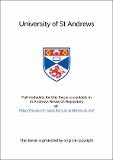The effects of grazing on the recovery of plant-pollinator systems following fire in the Mediterranean
Abstract
This study was carried out in phrygana and maquis habitats of the Eastern Mediterranean (hot-spots for bee diversity), to assess grazing impacts on bee communities in habitats also experiencing frequent wildfires, and to explain the mechanisms of such effects. On Mount Carmel, Israel, in 1999 and 2000, habitats with varying intensities of cattle grazing and post-burn age were surveyed. Bee diversity and abundance were measured, together with grazing levels, floral diversity and abundance, nectar and pollen rewards and vegetation structure. On the Island of Lesvos, in 2001, the effects of grazing on vegetation structure and reward production of two shrub species were investigated. Exclosures were used in both sites to show the immediate effects on flowers of removing livestock form formerly grazed areas. Close relationships were found between bee diversity and abundance and flower diversity and abundance, bee abundance being better explained by the previous year's flower abundance. Bee abundance also increased with pollen abundance, but not with nectar availability. Bee and flower species richness were highest at moderate grazing intensities, but abundance, increased even at the highest intensities. Path-analysis showed that the effects of both grazing and fire on bee diversity occurred mainly via changes in herb flower diversity. Conversely, bee abundance was affected mainly by changes in halictid bees, which became more numerous in grazed sites, where ground was compacted and composites were abundant. Grazing also created a mosaic of tall scrub and open patches of herbs. This "patchiness" helped maintain a diverse herb flora. Studies of Cistus creticus and Lavandula stoechas in Lesvos showed that shrub species also produced more flowers, and higher rewards, at patch edges. Overall, bee communities benefit from a relatively high level of grazing in phrygana, and may be further increased if grazing pressure is relaxed during the peak flowering season.
Type
Thesis, PhD Doctor of Philosopy
Collections
Items in the St Andrews Research Repository are protected by copyright, with all rights reserved, unless otherwise indicated.

